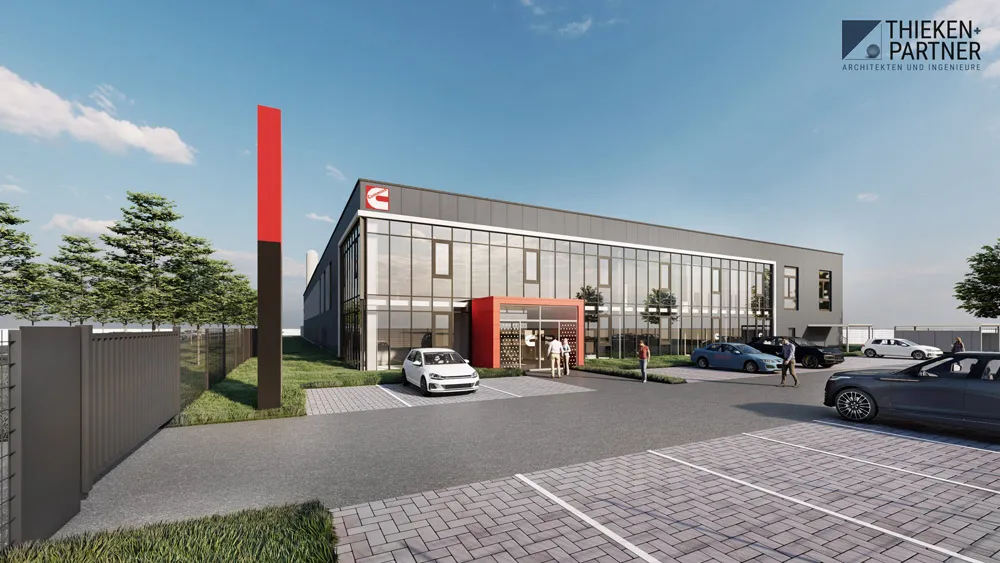The innovative QBREAK electric car is to benefit from a sophisticated methanol fuel cell range extender. Development work is being carried out on the project by a consortium of Danish companies. The plan is to develop a novel, range-extended electric vehicle that uses biomethanol as a fuel source. TheModularEnergyCarrier concept (MECc) project has just been granted funding from the Danish government. The reworked electric car is expected to deliver high market potential due to a competitive price and specif
July 9, 2012
Read time: 3 mins
The innovative QBREAK electric car is to benefit from a sophisticated methanol fuel cell range extender. Development work is being carried out on the project by a consortium of Danish companies. The plan is to develop a novel, range-extended electric vehicle that uses biomethanol as a fuel source. TheModularEnergyCarrier concept (MECc) project has just been granted funding from the Danish government. The reworked electric car is expected to deliver high market potential due to a competitive price and specifications that can be adapted to the user’s individual requirements. This versatility is delivered by the use of methanol-fuelled fuel cells for range extension.
The concept vehicle is based on the QBEAK electric car, now in the final phase of development by6143 ECOmove. The car essentially has six energy slots distributed through its structure that can each contain battery, fuel cell, or methanol tank. This allows the on-board energy storage to be adapted to different needs. The basic range-extended model will have a 2.5kW fuel cell and tank occupying two slots, but the modular design means that more fuel cell plus tank modules can be added if longer range is required by the customer. The project partners say that the car will have a range of at least 800km.
The fuel cells are being supplied by6144 Serenergy, which has developed a unit containing an air-cooled, high-temperature PEM fuel cell with integrated reformer to run on methanol. It is currently working on several applications for this fuel cell system, with one of these already firmly on the path to commercial success: theEcoMotion landscape maintenance truck is already seeing sales without the benefit of subsidies. In this instance, Serenergy is looking to apply the technology as an e-mobility enabler.
The QBEAK is a plug-in type vehicle: the concept allows the customer the flexibility of recharging the batteries during off-peak periods when electricity costs are low, or filling up with methanol in a few minutes when that convenience is desired. The intention is for the methanol to be distributed through existing infrastructure, with methanol pumps available on regular filling station forecourts, minimising this particular cost barrier to introduction. An initial costing has indicated that a pump can be converted to dispense methanol for around €15,000.
Although the use of methanol means the vehicle will not have zero tailpipe emissions, Serenergy emphasises that renewable methanol is already being produced and is commercially available. In addition to renewable fuel, the concept can deliver significant energy savings. Serenergy claims that on a well-to-wheel basis the combination of methanol and fuel cells can halve energy use compared to conventional vehicle technology.
Fuel cell range extenders also offer other benefits. The fuel cell cogenerates high-grade heat that can be harnessed for cabin heating and cooling, further enhancing efficiency. The batteries benefit from a more stable state of charge and last longer, reducing overall lifecycle energy use and cost.
EV industry cluster Insero E-Mobility is managing the project, and it is being funded under the Energy Technology Development and Demonstration Program (EDDP), which supports the development of technologies to make Denmark independent of fossil fuels by 2050.
The concept vehicle is based on the QBEAK electric car, now in the final phase of development by
The fuel cells are being supplied by
The QBEAK is a plug-in type vehicle: the concept allows the customer the flexibility of recharging the batteries during off-peak periods when electricity costs are low, or filling up with methanol in a few minutes when that convenience is desired. The intention is for the methanol to be distributed through existing infrastructure, with methanol pumps available on regular filling station forecourts, minimising this particular cost barrier to introduction. An initial costing has indicated that a pump can be converted to dispense methanol for around €15,000.
Although the use of methanol means the vehicle will not have zero tailpipe emissions, Serenergy emphasises that renewable methanol is already being produced and is commercially available. In addition to renewable fuel, the concept can deliver significant energy savings. Serenergy claims that on a well-to-wheel basis the combination of methanol and fuel cells can halve energy use compared to conventional vehicle technology.
Fuel cell range extenders also offer other benefits. The fuel cell cogenerates high-grade heat that can be harnessed for cabin heating and cooling, further enhancing efficiency. The batteries benefit from a more stable state of charge and last longer, reducing overall lifecycle energy use and cost.
EV industry cluster Insero E-Mobility is managing the project, and it is being funded under the Energy Technology Development and Demonstration Program (EDDP), which supports the development of technologies to make Denmark independent of fossil fuels by 2050.







